Abstract
Twenty-six patients suffering from methylmercury poisoning were treated by different therapeutic regimes. Seven received penicillamine or N-acetyl-d-L-penicillamine, 10 were treated with dimercaprol sulfonate and 9, who could not be treated, were given a placebo and were used as controls. Penicillamine, N-acetyl-d-L-penicillamine, and dimercaprol sulfonate reduced the blood level of mercury and increased its urinary excretion. No appreciable clinical improvement was noticed among the severe or very severe cases, while mild or moderate cases improved clinically irrespective of the treatment given.
Full text
PDF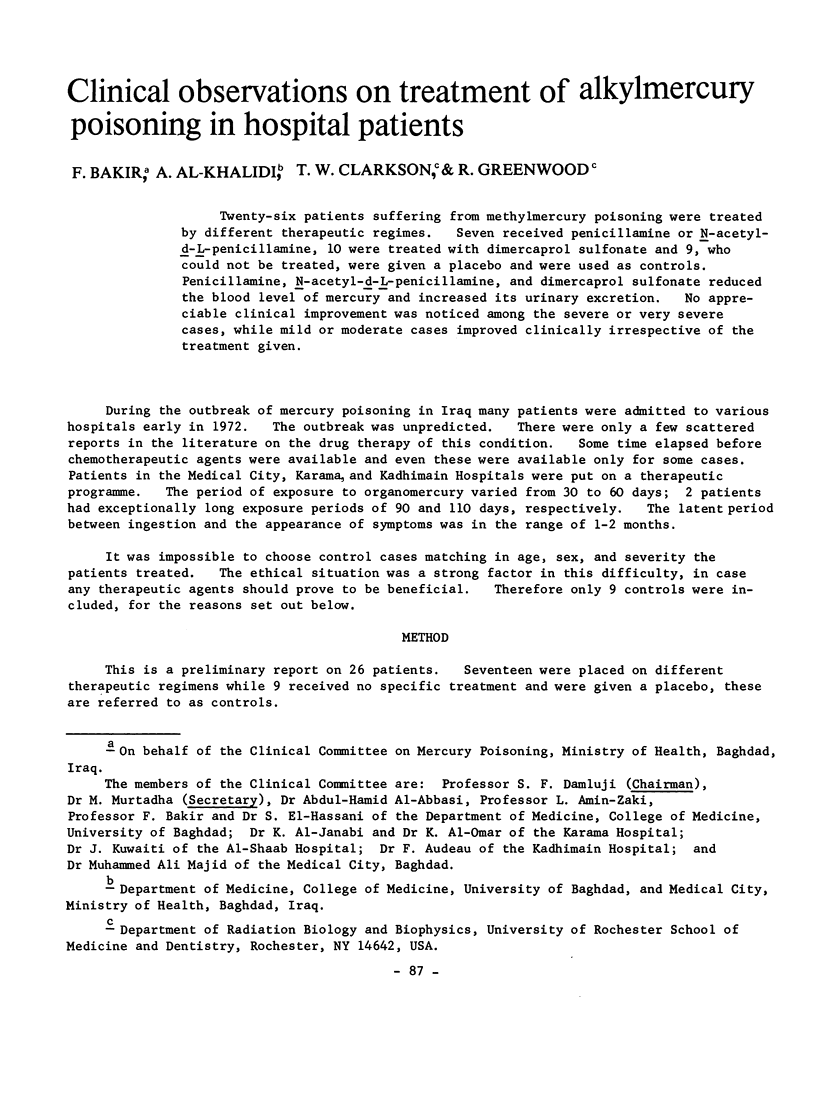
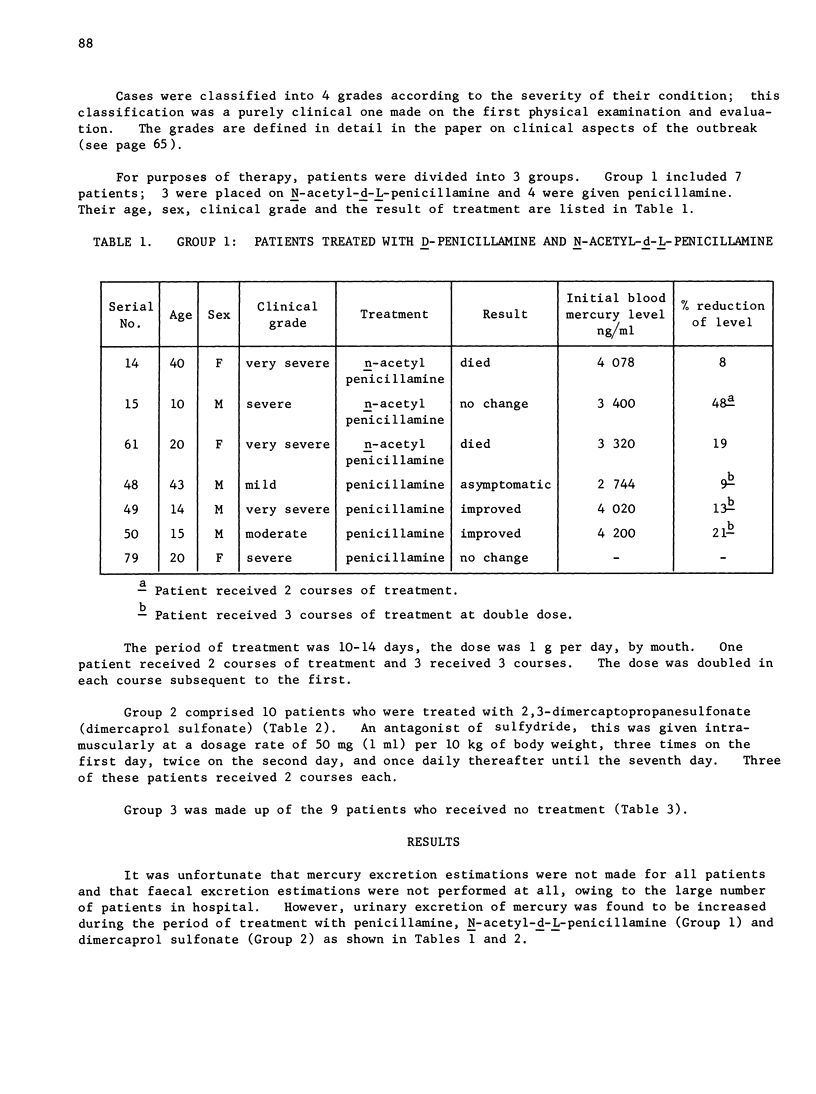
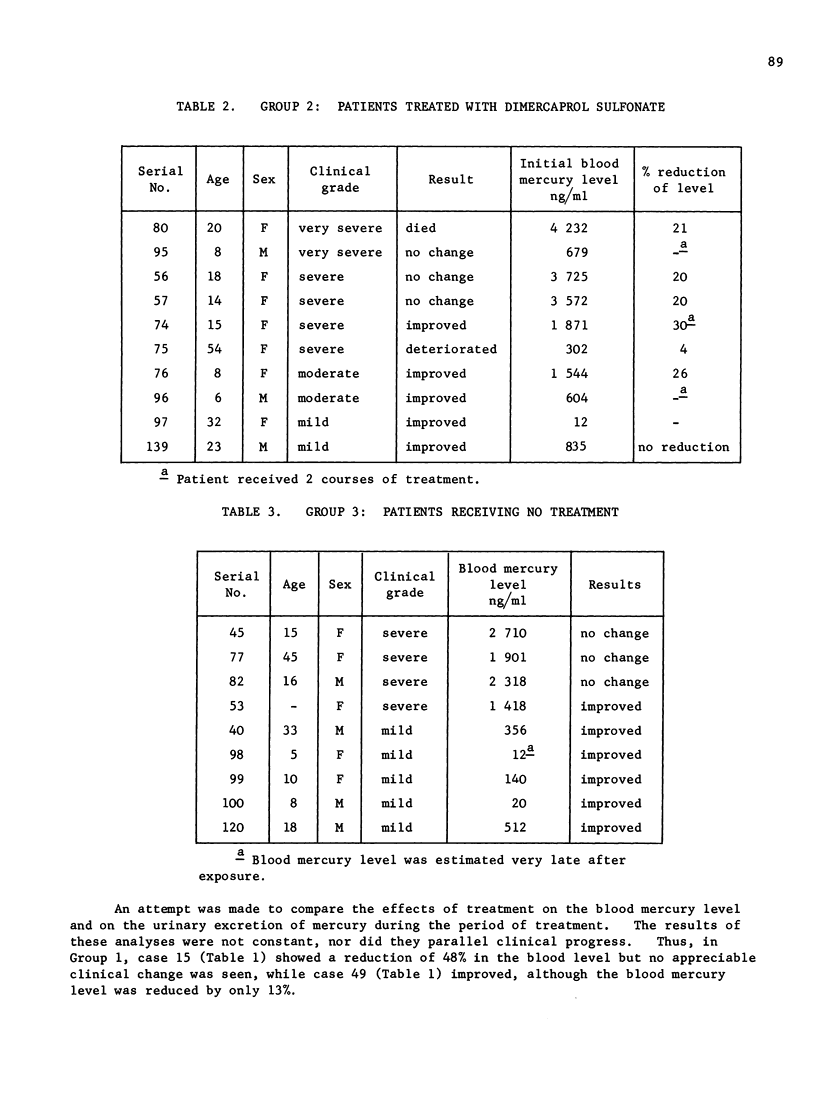
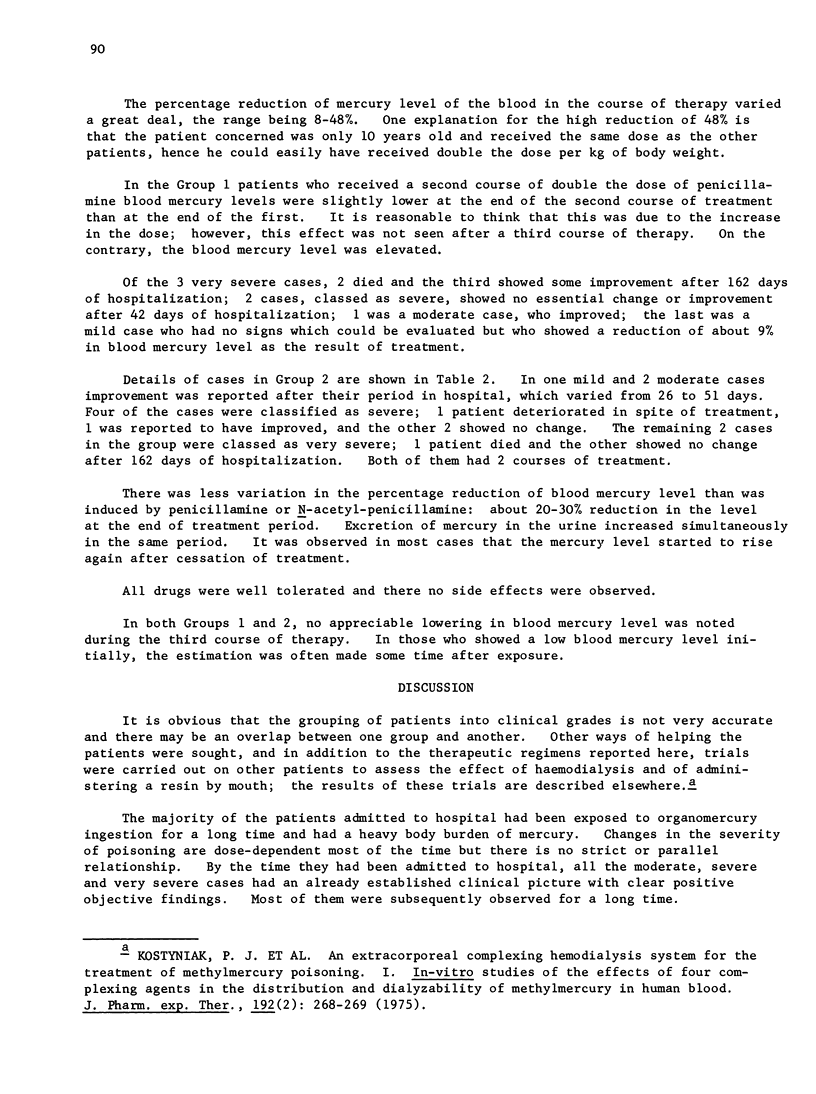
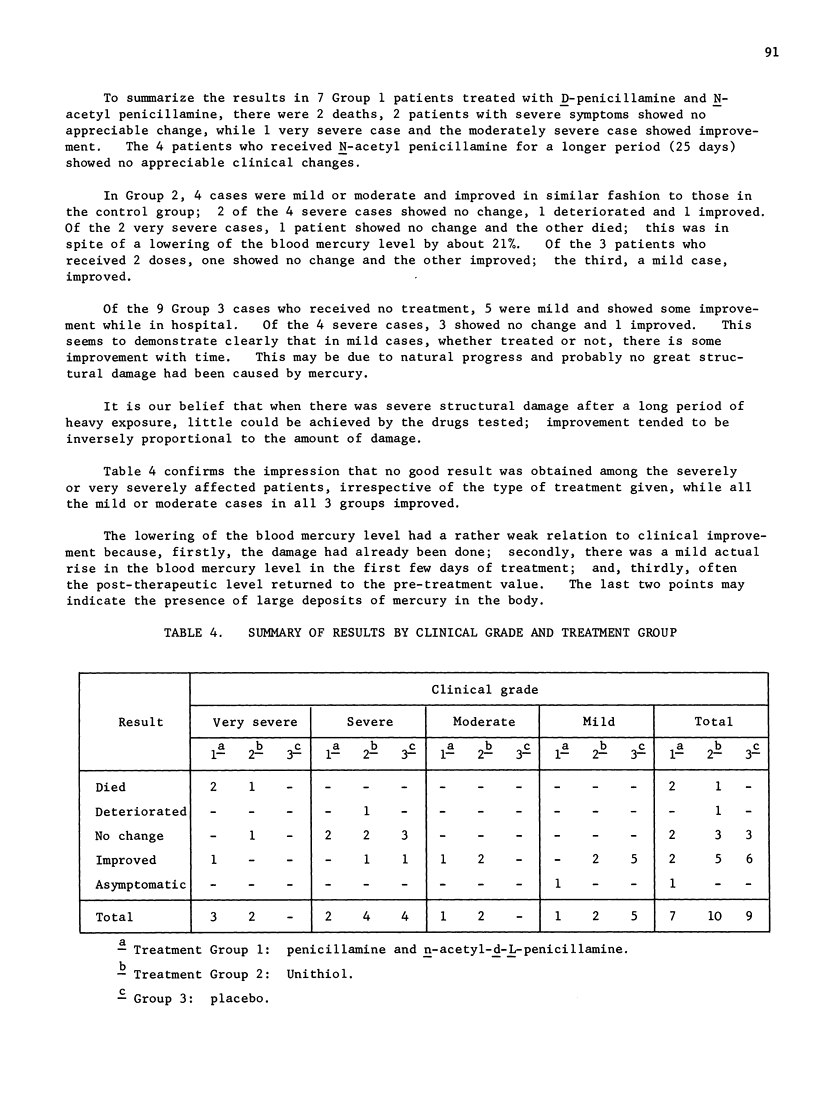
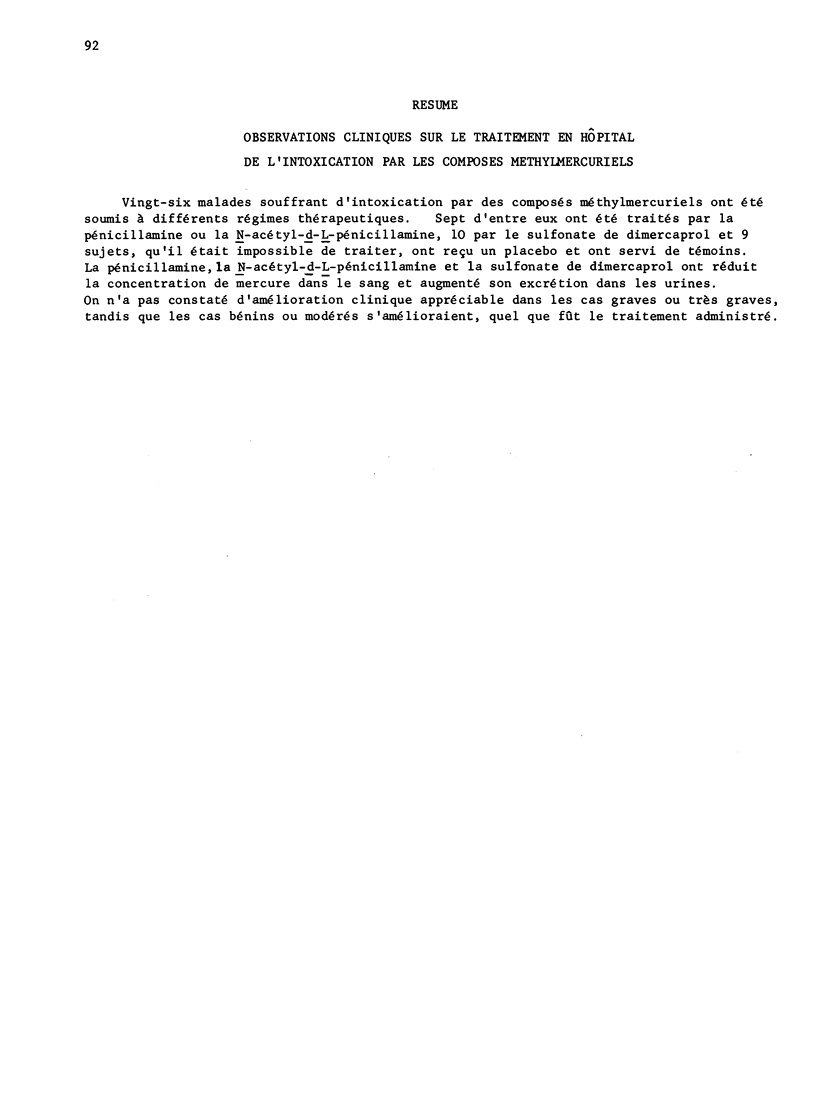
Selected References
These references are in PubMed. This may not be the complete list of references from this article.
- Kostyniak P. J., Clarkson T. W., Cestero R. V., Freeman R. B., Abbasi A. H. An extracorporeal complexing hemodialysis system for the treatment of methylmercury poisoning. I. In vitro studies of the effects of four complexing agents on the distribution and dialyzability of methylmercury in human blood. J Pharmacol Exp Ther. 1975 Feb;192(2):260–269. [PubMed] [Google Scholar]


